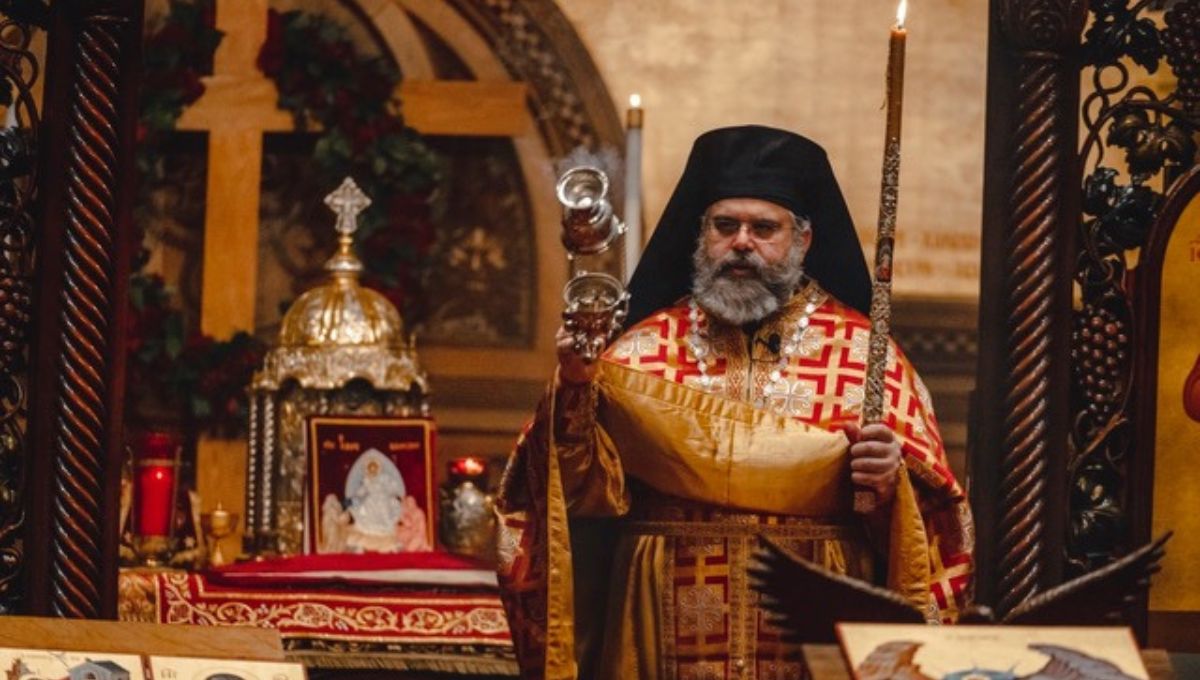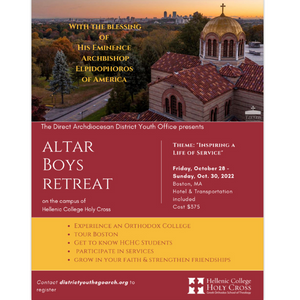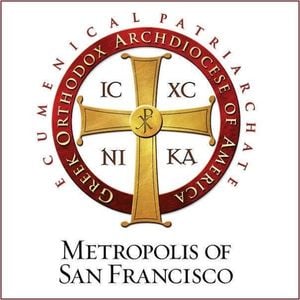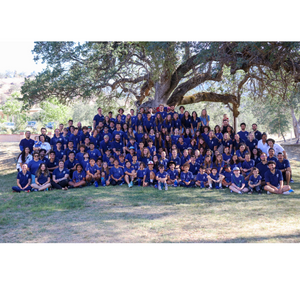IOCC Charity Pan-Orthodox 5K Run/Walk
Orthodox School Starting in Denver

October 15 Ordination Scheduled for Detroit Metropolis Auxiliary Bishop

In continuation to the July 22, 2022, communication from the Ecumenical Patriarchate’s Holy and Sacred Synod announcing the unanimous election of His Grace Bishop-elect Constantine of Sassima (Moralis) as an auxiliary Bishop for the Holy Metropolis of Denver, it is with much joy that our Sacred Archdiocese announces that His Grace’s ordination to the Holy Episcopacy will take place at the Archdiocesan Cathedral of the Holy Trinity in New York City this fall, on October 15.
His Grace Bishop-elect Constantine of Sassima (Moralis) was born in 1966 in Baltimore, Maryland. He is the son of the late Petros (a refugee from Asia Minor born in Athens) and Sarah (of Mobile, Alabama), and is the youngest of three children.
From an early age, His Grace served as an acolyte at the Greek Orthodox Cathedral of the Annunciation in Baltimore, MD under the late Fr. Constantine M. Monios of blessed memory, a mentor who encouraged him to pursue ordained ministry. In 1988, he began his studies at Hellenic College and graduated from Holy Cross Greek Orthodox School of Theology in 1994. He was ordained to both the holy Diaconate and Presbyterate in 1996 by the late Metropolitan Silas of New Jersey of blessed memory and was assigned to the Annunciation Cathedral in Baltimore — the same parish where he was baptized and raised — and has served as its pastor to the present day. He was elevated to the rank of Confessor in the year 2000 and to the rank of Archimandrite in 2002, at which time he was also installed as Dean of the Annunciation Cathedral. On July 22, 2022, he was elected by the Ecumenical Patriarchate’s Holy and Sacred Synod as the Bishop of Sassima.
With over 1,000 families at the Cathedral, His Grace has worked tirelessly to serve the needs of the parish and the greater Baltimore community. He has established a number of programs for youth and young adults and is the founder of the Annunciation Senior Center. His Grace’s pride and joy, the Annunciation Senior Center affords senior members of the community a safe haven for Christian fellowship while receiving the highest level of care, but has temporarily closed due to Covid. He served as the director of the Chesapeake region’s Camp Good Shepherd and has led four overseas pilgrimages. His Grace currently serves on the Board of Trustees for both Hellenic College Holy Cross Greek Orthodox School of Theology and St. Basil Academy.


 Archdiocesan District Youth Office to Hold Altar Boy Retreat
Archdiocesan District Youth Office to Hold Altar Boy Retreat
 The Clergy Continuing Education Ministry of the Greek Orthodox Metropolis of San Francisco is hosting a retreat for Deacons and Diaconal candidates from October 28 – 30, 2022 at Saint Nicholas Ranch and Retreat Center in Dunlap, CA.
The Clergy Continuing Education Ministry of the Greek Orthodox Metropolis of San Francisco is hosting a retreat for Deacons and Diaconal candidates from October 28 – 30, 2022 at Saint Nicholas Ranch and Retreat Center in Dunlap, CA.
 The Greek Orthodox Metropolis of San Francisco Church Music Federation Ministry invites you to participate in a day of education and inspiration to introduce the history, theology, benefits, and resources to add congregational singing to parish worship.
The Greek Orthodox Metropolis of San Francisco Church Music Federation Ministry invites you to participate in a day of education and inspiration to introduce the history, theology, benefits, and resources to add congregational singing to parish worship.
 We did it! After two summers of not being able to hold our Metropolis Summer Camp in-person, we brought Summer Camp BACK after (and still during) a world-wide pandemic. It took a lot of work to create a unique plan for this summer, hire the staff, and get the property ready, but Glory to God, our team worked together to make it happen!
We did it! After two summers of not being able to hold our Metropolis Summer Camp in-person, we brought Summer Camp BACK after (and still during) a world-wide pandemic. It took a lot of work to create a unique plan for this summer, hire the staff, and get the property ready, but Glory to God, our team worked together to make it happen!
 It is with sadness yet with hope in the Resurrection that the Greek Orthodox Metropolis of San Francisco announces the passing of Rev. Father Elias Velonis, who reposed in the Lord on August 17, 2022. Father Elias was a dedicated priest in the Archdiocese, who came to the west coast upon his retirement in 2011.
It is with sadness yet with hope in the Resurrection that the Greek Orthodox Metropolis of San Francisco announces the passing of Rev. Father Elias Velonis, who reposed in the Lord on August 17, 2022. Father Elias was a dedicated priest in the Archdiocese, who came to the west coast upon his retirement in 2011.